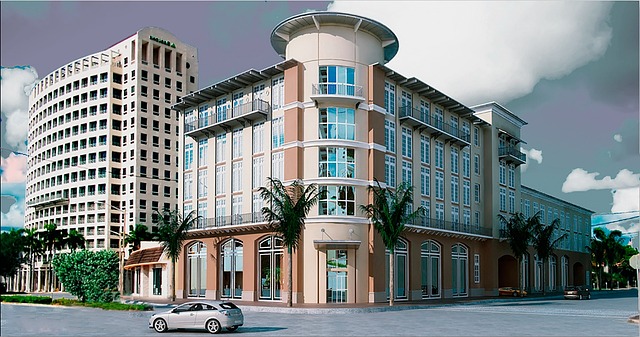When considering an Executive Condo (EC) in Singapore, it's important to understand the unique Executive Condo requirement framework that governs financing. Prospective EC buyers must adhere to Loan-to-Value (LTV) limits set by the government, which for banks can be up to 75% of the property's value or purchase price, depending on which is lower. To qualify for this loan amount, buyers must meet income and ownership criteria, ensuring they have a stable monthly income and have not exceeded the ownership restrictions that apply to subsidiary flats. Additionally, buyers should explore both bank loans and Housing & Development Board (HDB) loans, comparing their terms based on interest rates, repayment conditions, and how they align with the TDSR and MSR limits. It's also advisable for potential EC owners to check their credit score and address any issues prior to applying for a loan, as this can impact loan approval. Understanding the Executive Condo requirement and financial implications will help you navigate the process effectively and secure an EC loan with favorable terms.
navigating the nuanced landscape of property ownership in Singapore, prospective buyers must understand the unique framework governing Executive Condos (ECs). This article delves into the specific requirements for securing an EC loan, ensuring clarity on age limits, income ceilings, and the interplay between SC status and SingPass. From discerning the distinctions between bank loans and HDB loans to grasping LTV limits, each aspect of Executive Condo Requirement is scrutinized to empower buyers with the knowledge necessary for informed decision-making. A comprehensive guide awaits those ready to explore the practicalities of EC loan eligibility.
- Understanding Executive Condo (EC) Housing: A Primer for Prospective Buyers
- Age Considerations for Eligibility to Purchase an Executive Condo
- Income Ceilings and Financial Assessments for EC Loan Applicants
- The Role of Singapore Citizen (SC) and SingPass in EC Loan Eligibility
- Mortgage Options: Bank Loans vs HDB Loans for Executive Condos
- Occupier vs Owner: EC Loan Eligibility Differences in Ownership Status
- Loan-to-Value (LTV) Limits and How They Affect Your Executive Condo Financing
- Maximizing Your Chances: Tips for Approval of Executive Condo Loans
Understanding Executive Condo (EC) Housing: A Primer for Prospective Buyers

Navigating the world of Executive Condos (ECs) in Singapore presents unique considerations for prospective buyers, particularly when it comes to financing their purchase with an EC loan. Understanding the specific requirements for an EC is crucial as these housing types blend the features of both public and private properties. Unlike HDB flats, applicants for an EC loan must meet the Adaptable Public Housing and Elderly (APHE) scheme eligibility criteria, which include being a Singaporean citizen, at least one applicant must be 35 years old or older, and the income ceiling must not exceed $14,000. Additionally, applicants must have been married or in a long-fisted relationship for at least 3 years and own another flat. Prospective buyers should also note that after five years of staying in an EC, they are eligible to apply to buy the flat from the HDB, subject to satisfying the relevant criteria at the time of application. Understanding these Executive Condo Requirements is essential for prospective buyers to ensure they are prepared for the commitments and conditions associated with owning an EC in Singapore.
Age Considerations for Eligibility to Purchase an Executive Condo

For prospective homeowners considering the purchase of an Executive Condo (EC) in Singapore, age is a key factor in eligibility, as dictated by the Housing & Development Board (HDB). Singles, including both singles and couples, must be at least 21 years old to apply for an EC loan. This requirement aligns with the broader policy framework aimed at promoting responsible home ownership. Furthermore, applicants must not exceed the Open Market Quantum (OMQ) ceiling, which is $30,000 for those below 35 years old and $45,000 for those aged between 35 and 55 years old at the time of application. These age-specific limits are designed to ensure that individuals are financially prepared for the responsibilities associated with owning an EC. Additionally, the loan tenure for those above 35 years old at the time of application is capped at 25 years, reflecting the need for a shorter loan period as individuals approach retirement age. These guidelines are part of the Executive Condo Requirement framework, which outlines the eligibility criteria for financing these housing units, ensuring that applicants meet the necessary financial and age prerequisites to secure an EC loan.
Income Ceilings and Financial Assessments for EC Loan Applicants

Prospective Executive Condo (EC) loan applicants must meet specific income and financial criteria set by financial institutions in Singapore. The income ceiling for EC loan applicants is a pivotal factor; it defines the upper limit of monthly income that a borrower can have to be eligible for an EC loan. This cap is periodically reviewed by the authorities to ensure affordability and stability within the property market. Applicants must fall within this income bracket at the time of application as well as throughout the tenure of the loan.
Beyond the income ceiling, financial institutions conduct a thorough assessment of an applicant’s financial health before sanctioning an EC loan. This comprehensive evaluation includes analyzing the borrower’s existing debt servicing, credit history, and other financial obligations. The objective is to ascertain that the applicant has a stable and reliable income sufficient to manage the repayment commitments without undue strain on their finances. Applicants must demonstrate financial prudence through a consistent repayment record and a solid financial standing, which are critical Executive Condo Requirements for securing an EC loan in Singapore.
The Role of Singapore Citizen (SC) and SingPass in EC Loan Eligibility

Singapore’s unique housing landscape includes the Executive Condominiums (ECs), which cater to the mid-income group with features akin to private condos while being eligible for certain CPF housing grants. Prospective EC owners must navigate the specific requirements set forth by the Housing & Development Board (HDB) and financial institutions. A pivotal aspect of EC loan eligibility revolves around the Singapore Citizen (SC) status of the applicants. Only Singapore Citizens are eligible to purchase an EC, and at least one applicant must be an SC. This citizen requirement is a non-negotiable condition that aligns with broader government policies aimed at prioritizing housing for citizens.
In addition to SC status, prospective borrowers require a functional SingPass, Singapore’s national digital identity platform, to apply for an EC loan. The SingPass acts as a gateway, enabling applicants to access various e-services, including those required for the loan application process. It serves as a verification tool, ensuring that the individual applying for the loan is indeed a legitimate Singapore Citizen with no restrictions on property ownership. This dual requirement of SC status and SingPass functionality underscores the importance of secure identification in the loan eligibility criteria for Executive Condos in Singapore, facilitating a streamlined and efficient application process.
Mortgage Options: Bank Loans vs HDB Loans for Executive Condos

In the realm of securing a loan for an Executive Condominium (EC) in Singapore, prospective homeowners have the option to choose between bank loans and Housing & Development Board (HDB) loans. Each option carries its own set of characteristics that can influence the decision based on individual financial circumstances and preferences. Bank loans typically offer a variety of mortgage options, often with more flexible repayment structures and possibly lower interest rates compared to HDB loans. These bank loans are provided by private financial institutions and come with their own terms and conditions, which may include different loan-to-value (LTV) ratios depending on the property’s age and the borrower’s financial profile.
On the other hand, HDB loans, also known as Housing Loans, are designed specifically for purchasing public housing, including ECs. The HDB loan eligibility criteria are tailored to support first-time homeowners and those who meet the Executive Condo requirement, which includes the stipulation that at least one owner must be a Singapore citizen, and the flat cannot be resold within the minimum occupation period of 5 years. HDB loans come with their advantages, such as concessionary interest rates that are generally lower than market rates, making them an attractive option for many buyers. Prospective EC owners should assess both options carefully, considering factors like loan tenure, early repayment penalties, and the total cost of ownership to determine which mortgage aligns best with their financial planning and Executive Condo requirements. It’s advisable to consult with a financial advisor or a bank representative to understand the nuances of each loan type and make an informed decision that suits your long-term financial goals.
Occupier vs Owner: EC Loan Eligibility Differences in Ownership Status

In Singapore, the distinction between an EC (Executive Condominium) occupier and owner carries significant implications for loan eligibility under different housing grants and mortgage terms. For instance, individuals who purchase an EC as their first residential property are classified as occupiers and have access to various housing grants such as the CPF Housing Grant (CHG), which can substantially reduce the financial burden of purchasing an EC. However, they are subject to a five-year minimum occupation period before they can sublet their unit or sell it on the open market. On the other hand, an owner of an EC, who may have previously lived in the property but has since sold or rented it out, enjoys greater liquidity as they can apply for an unencumbered bank loan up to 75% of the purchase price or value of the EC, provided they meet the Executive Condo requirement criteria set by financial institutions. This includes having a monthly income that does not exceed SGD $14,000 and owning or previously owning a subsidiary flat. Owner-occupiers also have the advantage of leveraging their CPF savings for larger loan amounts without the same restrictions as occupiers. Understanding the nuances between being an occupier and an owner is crucial for prospective buyers to navigate the Executive Condo requirement landscape and make informed decisions that align with their long-term financial goals.
Loan-to-Value (LTV) Limits and How They Affect Your Executive Condo Financing

When considering financing for an Executive Condo (EC) in Singapore, understanding Loan-to-Value (LTV) limits is paramount. LTV ratios dictate the maximum loan amount a financial institution will provide relative to the property’s value. For ECs, the Singapore government sets these LTV limits to manage risks associated with housing loans. Typically, for the first loan, banks may offer up to 75% of the purchase price or valuation of the EC, whichever is lower, to buyers who meet the Executive Condo requirement and are able to service the loan. This means that buyers must prepare for a down payment of at least 25% of the property’s value. Should buyers require additional funding beyond their initial loan, they can consider a second loan, known as a Additional CPF Housing Grant (AHG), which can cover up to 10% of the purchase price or valuation, but only up to a combined LTV limit of 80%. It’s crucial for buyers to be aware that exceeding these LTV limits could result in higher interest rates or additional mortgage insurance premiums, which can increase the overall cost of financing an EC. As such, potential EC owners should carefully plan their finances and understand the LTV limits associated with their loan options, as this will significantly influence their repayment obligations and financial planning post-purchase.
Maximizing Your Chances: Tips for Approval of Executive Condo Loans

When seeking an Executive Condo (EC) loan, understanding the specific requirements and aligning your financial profile to meet them is paramount for approval. Prospective EC owners should note that the Singaporean government has set out clear guidelines for those looking to finance these properties. To maximize your chances of securing an EC loan, ensure that you have a stable income as lenders typically require a minimum monthly income. This financial stability demonstrates to the bank or financial institution that you can manage the repayment of the loan despite the fluctuating economic conditions.
Moreover, it’s advisable to compare the terms and conditions of various financial institutions, as each may have its own set of Executive Condo requirements. Some may offer more competitive interest rates, while others might have different stipulations regarding the total debt servicing ratio (TDSR) or mortgage servicing ratio (MSR). By doing your research and understanding these ratios, you can strategize your financial commitments to ensure that you fall within their acceptable limits. Additionally, a good credit score is often a deciding factor for loan approval, so it’s wise to check your credit report ahead of time and rectify any discrepancies or issues that may impact your application. Keeping these factors in mind and preparing your documentation thoroughly will significantly enhance your eligibility for an Executive Condo loan.
When contemplating the purchase of an Executive Condo (EC) in Singapore, understanding the eligibility requirements for securing an EC loan is paramount. This article has demystified the process, outlining key aspects such as age limits, income ceilings, and the importance of SingPass for applicants. Prospective buyers must also weigh their options between bank loans and HDB loans, consider the distinctions in loan eligibility based on whether they will be occupiers or owners, and be aware of Loan-to-Value (LTV) limits that influence financing. With these factors in mind, potential EC owners can strategize to maximize their approval chances for an EC loan, ensuring a smooth path to homeownership. Prospective buyers should carefully review the Executive Condo Requirements outlined throughout this article to make informed decisions aligned with their financial situation and aspirations.
